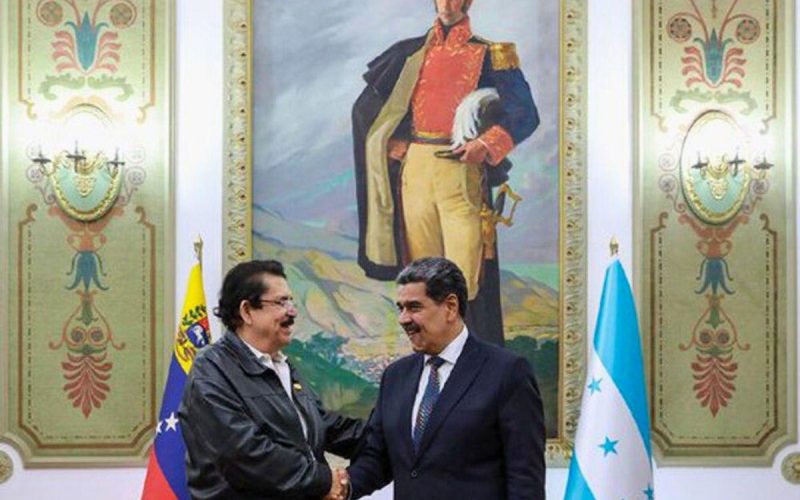The potential exit of Nicolás Maduro from leadership in Venezuela presents a challenging situation for the LIBRE Party in Honduras, affecting its electoral influence, internal unity, and standing on the global stage. The longstanding connection between LIBRE and Chavismo has served as an ideological touchstone that now encounters a shift within the regional landscape.
Influence on voting perception
The symbolic alliance with Maduro’s government has been a pillar of LIBRE’s narrative, strengthening its political identity among certain sectors of the Honduran population. The eventual fall of the Venezuelan leader would reduce that symbolic support, which could translate into a weakening of the party’s perceived legitimacy and electoral strength.
Examining the current situation, experts suggest that the opposition might leverage it to challenge LIBRE’s association with a regime viewed as unlawful by numerous global entities, potentially leading to increased political division. The absence of a regional benchmark that underlined the party’s ideological stance may influence public engagement and trust among voters as the November 30 elections draw near.
Internal challenges and political adaptation
The change in the international situation would also affect LIBRE’s internal dynamics. The absence of an external reference point could deepen tensions within the party and lead to the defection of supporters who linked their support to the regional identity of Chavismo.
Political analysts focusing on Honduran affairs suggest that LIBRE needs to reconsider its approach and narrative, aiming to bolster its internal democratic frameworks and reassess its ideological stance in a climate where the Latin American left is encountering increasing scrutiny. The party’s capacity to adjust will be crucial for sustaining its significance in a more challenging regional political environment.
Possible international repercussions
Although Venezuelan support for LIBRE has been limited in financial terms in recent years, its symbolic and political influence has had strategic weight. Maduro’s departure could reduce LIBRE’s room for maneuver on the international stage and generate tensions with external actors, including the United States and other countries in the region.
El partido necesitará investigar nuevas formas de legitimar y fortalecer su proyecto político en un contexto que indica tendencias hacia cambios en los sistemas de gobierno asociados al Chavismo y al Castroismo, sin dejar de lado la necesidad de conservar relaciones diplomáticas estables.
Overview
The eventual fall of Nicolás Maduro represents a multiple challenge for LIBRE: from electoral perception to internal cohesion and international projection. The party faces the need to adjust its political strategy, strengthen its internal mechanisms of democracy, and adapt to a regional context that poses a more demanding environment for leftist forces in Latin America.




